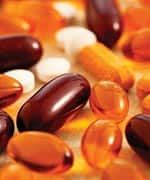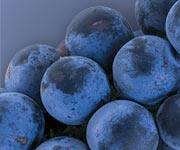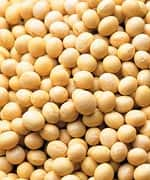Life Extension Magazine®
Olive Polyphenols Protect Blood Vessels | |
Meals rich in olive polyphenols improve endothelial function and blood flow in people with high cholesterol, according to a study conducted at the University of Cordoba in Spain.* Impaired endothelial function is a major contributor to heart disease. These findings support the observation that those who consume an olive oil-rich, Mediterranean-style diet enjoy a lower risk of heart disease. Twenty-one healthy adults with high cholesterol participated in the study. On average, the participants were 59 years of age, had a body mass index (BMI) of 25.4, and a total cholesterol level between 200 and 350 mg/dL, placing them at an increased risk for heart disease. The subjects did not use vitamins, supplements, or medications in the six weeks preceding the study. In the 24-hour period before the study’s onset, they consumed a polyphenol-poor diet and did not engage in exercise. The study participants consumed a test meal consisting of olive oil with either a high or low content of polyphenols, as well as white bread and vitamin A. The investigators collected venous blood samples after the subjects consumed the test meal and 30, 60, 120, and 240 minutes thereafter for the purpose of assessing oxidative stress. Additionally, they assessed endothelial function by determining the amount of time required for blood flow to return to the participants’ arms following mechanical obstruction of blood flow. Blood flow increased significantly in the high-polyphenol olive oil group as early as 120 minutes after the test meal, and this improvement persisted until the end of the assessment at 240 minutes. Also, levels of an endogenous blood vessel dilator increased, while indicators of oxidative stress decreased. These changes indicate that olive polyphenols improved endothelial function and blood flow while decreasing oxidative stress. The study results demonstrate that olive-derived polyphenols produce rapid improvement in blood flow characteristics and endothelial function, suggesting that their daily consumption may improve cardiovascular health and decrease the risk for heart disease. —Linda M. Smith, RN | |
| Reference | |
| * Ruano J, Lopez-Miranda J, Fuentes F, et al. Phenolic content of virgin olive oil improves ischemic reactive hyperemia in hypercholesterolemic patients. J Am Coll Cardiol. 2005 Nov 15;46(10):1864-8. | |
Elevated HDL Protects Against Coronary Events | |
Maintaining elevated levels of high-density lipoprotein (HDL) may help reduce the risk of cardiovascular events such as heart attack, report researchers in the American Heart Journal.1 Scientists have amassed overwhelming evidence that low-density lipoprotein (LDL) is synonymous with elevated risk of heart disease and other coronary events. As a result, physicians follow US government-sponsored guidelines and routinely monitor their patients’ LDL levels.2 Doctors may even prescribe lifestyle or dietary changes, if not statin drugs, to lower elevated levels of LDL and triglycerides, a condition known as hyperlipidemia. While these same guidelines recognize that elevated HDL is actually desirable, less is known about the potential benefits of elevated HDL than is understood about the dangers of increased LDL. To illuminate HDL’s role in protecting blood vessels from atherosclerosis (an underlying cause of heart disease), scientists in Pennsylvania examined serial HDL levels in nearly 7,000 patients in an urban primary care practice. They noted changes in patients’ HDL levels over 12 years, and compared those changes with patients’ heart-health histories. After adjustment for other known coronary risk factors such as smoking, diabetes, and hypertension, statistical analysis revealed that patients with a 10-mg/dL higher initial HDL level experienced an 11% lower risk of coronary events. Patients whose HDL levels increased by 10 mg/dL between measurements enjoyed a 7% reduction in risk of events. Interestingly, the researchers found no relationship between changes in LDL or triglyceride levels and risk of coronary events.1 More than a decade ago, researchers at Johns Hopkins performed a similar statistical analysis. By considering data gathered from patients with established coronary artery disease over a 13-year period, they found that two factors predict a second coronary event. The first involves measurement of the heart’s ejection capacity, determined by expensive imaging technologies. But the second, low HDL, is readily measured by performing a blood lipid profile.3 —Dale Kiefer
| |
| Reference | |
| 1. Koro CE, Bowlin SJ, Stump TE, Sprecher DL, Tierney WM. The independent correlation between high-density lipoprotein cholesterol and subsequent major adverse coronary events. Am Heart J. 2006 Mar;151(3):755-755.
| |
Soy, Stevia Counter Metabolic Syndrome | |
The combination of soy protein and stevioside, a derivative of the leaves of the stevia plant (Stevia rebaudiana), may counteract the numerous biochemical manifestations of metabolic syndrome, according to a recent report in the journal Metabolism.* Afflicting more than 50 million Americans, metabolic syndrome is characterized by insulin resistance, hypertension, elevated triglycerides, and diminished high-density lipoprotein (HDL). Animal studies have shown that stevioside lowers blood pressure and blood glucose, while soy protein is known for its beneficial effects on cardiovascular disease risk markers in type II diabetes. Stevia leaf is a calorie-free natural sweetener. Danish researchers sought to determine whether the combination of soy protein and stevioside would offer benefits in treating type II diabetes and metabolic syndrome. In this 10-week study, male diabetic rats were randomly assigned to four groups fed different test diets. The control group received a standard carbohydrate-rich chow diet, while the other groups received either standard chow plus stevioside, half chow and half soy protein, or half chow and half soy protein plus stevioside. Each week, the researchers measured plasma glucose, blood pressure, weight, and food intake in the test subjects. After two weeks of treatment, the stevioside-supplemented rats demonstrated reductions in systolic blood pressure and blood glucose levels. The rats supplemented with soy protein demonstrated reductions in total cholesterol, triglycerides, and free fatty acids. The researchers concluded, “The combination of stevioside and soy supplementation appears to possess the potential as an effective treatment of a number of the characteristic features of the metabolic syndrome.” —Christie C. Yerby, ND
| |
| Reference | |
| * Dyrskog SE, Jeppesen PB, Colombo M, Abudula R, Hermansen K. Preventative effects of a soy-based diet supplemented with stevioside on the development of the metabolic syndrome and type 2 diabetes in Zucker diabetic fatty rats. Metabolism. 2005 Sept;54(9):1181-8. |







